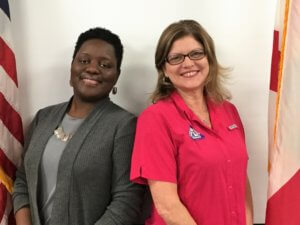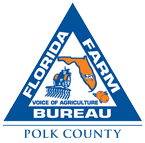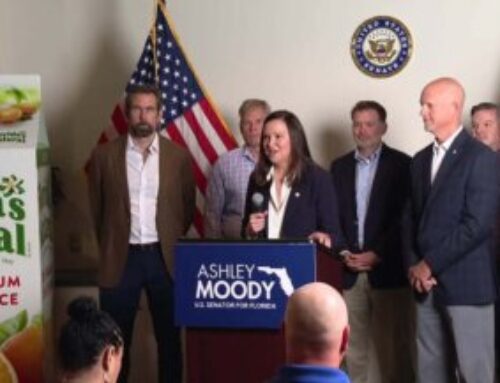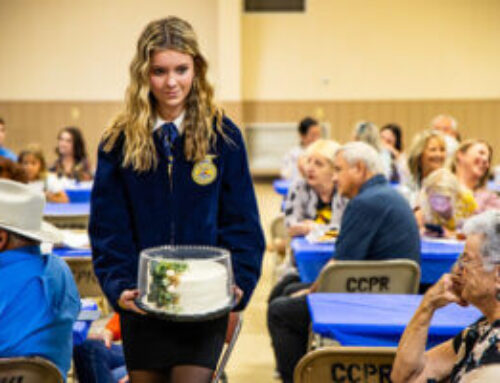Polk County Farm Bureau helps connect kids with agriculture through Agri-Fest


jackpayne@ufl.edu
@JackPayneIFAS
We’ve all heard the joke about kids thinking their milk doesn’t come from cows, but from the dairy case at the supermarket.
Nicole Walker doesn’t think it’s funny. Not even a little bit. She’s devoted her career to connecting kids to agriculture. She does it through her continuing 4-H work and through Polk County’s Agri-Fest, scheduled for March 12-23.
It’s part of what’s driven Walker’s involvement in Agri-Fest since she arrived in Polk in 2000 as a University of Florida Institute of Food and Agricultural Sciences’ Extension agent. She started as a 4-H agent and became the UF/IFAS Polk County Extension director in 2010.
One of the things I often say is that our most important crop in Florida is future leaders. Polk County is fertile ground.
It’s where Commissioner of Agriculture Adam Putnam, former U.S. Senator Kay Hagan and former Florida Cattlemen’s Association President Al Belotto grew up. Belotto’s Circle B Bar Ranch has been chosen as the site for the first Polk County Historical Commission marker three years ago.
And it’s where Carole McKenzie has led the Polk County Farm Bureau as its executive director for the past seven years. She had previously served in public affairs at Florida Citrus Mutual and at a Polk County farming and land operation.
Walker and McKenzie don’t want to leave any talent on the table. They come close to reaching every fourth-grader in Polk County. Some 6,000 of them get a close-up look at local agriculture over the 10 days of Agri-Fest.
Kids who know where their food comes from have a greater appreciation for what agriculture means to their community. It encourages healthy eating choices and it can even open eyes to potential career paths in the wide world of food. Even if they don’t go into agricultural careers, programs like Agri-Fest shape the perspective they bring into the leadership positions they’ll one day hold.
Walker has all of her agents involved, whether through direct teaching at the stations, arranging for volunteers such as Master Gardeners, or contributing to educational posters. McKenzie solicits sponsorships, does the heavy lifting on the administrative work involved in a 10-day event and even finds 6,000 snacks.
The way UF/IFAS and the Farm Bureau work together, along with Paul Webb of Polk County schools, is key to the event’s success and impact.
Agri-Fest is the biggest event that UF/IFAS and the Farm Bureau cooperate on in Polk, but they work together year round.
The relationship is so productive that McKenzie nominated Walker for the Farm Bureau’s Extension Professional of the Year Award. Though Walker didn’t win, the nomination signals a tight UF/IFAS-Farm Bureau connection in one of Florida’s most prominent agricultural counties, with 4,400 Farm Bureau members.
Walker and McKenzie agree that their first mission with 6,000 kids is awareness. Students may not know, for example, that the world’s largest research center dedicated to a single commodity is just a few miles up the road in Lake Alfred.
Agriculture is more a part of Polk County kids’ communities than they realize. To ignore this would be like not telling kids in Miami or Daytona how important the ocean is.
Agri-Fest is the main hands-on ag experience for most of these children. Walker has been working for years on getting more of them engaged in 4-H.
The quality of the experience we provide our children determines what they’ll become when they grow up. Some of them become teachers, and Agri-Fest has been going long enough that some students who attended decades ago are now teachers who bring their classes to the Polk County Extension Center for the hands-on activities at six stations.
These teachers understand just as Walker and McKenzie do that we have to keep replanting our most important crop. Polk County can be proud of Agri-Fest with its great partnership among UF/IFAS, the Farm Bureau and Polk County schools.
That partnership precedes Walker and McKenzie. They are the latest valuable stewards of the relationship. Those 6,000 kids and the county’s future benefit from it.




